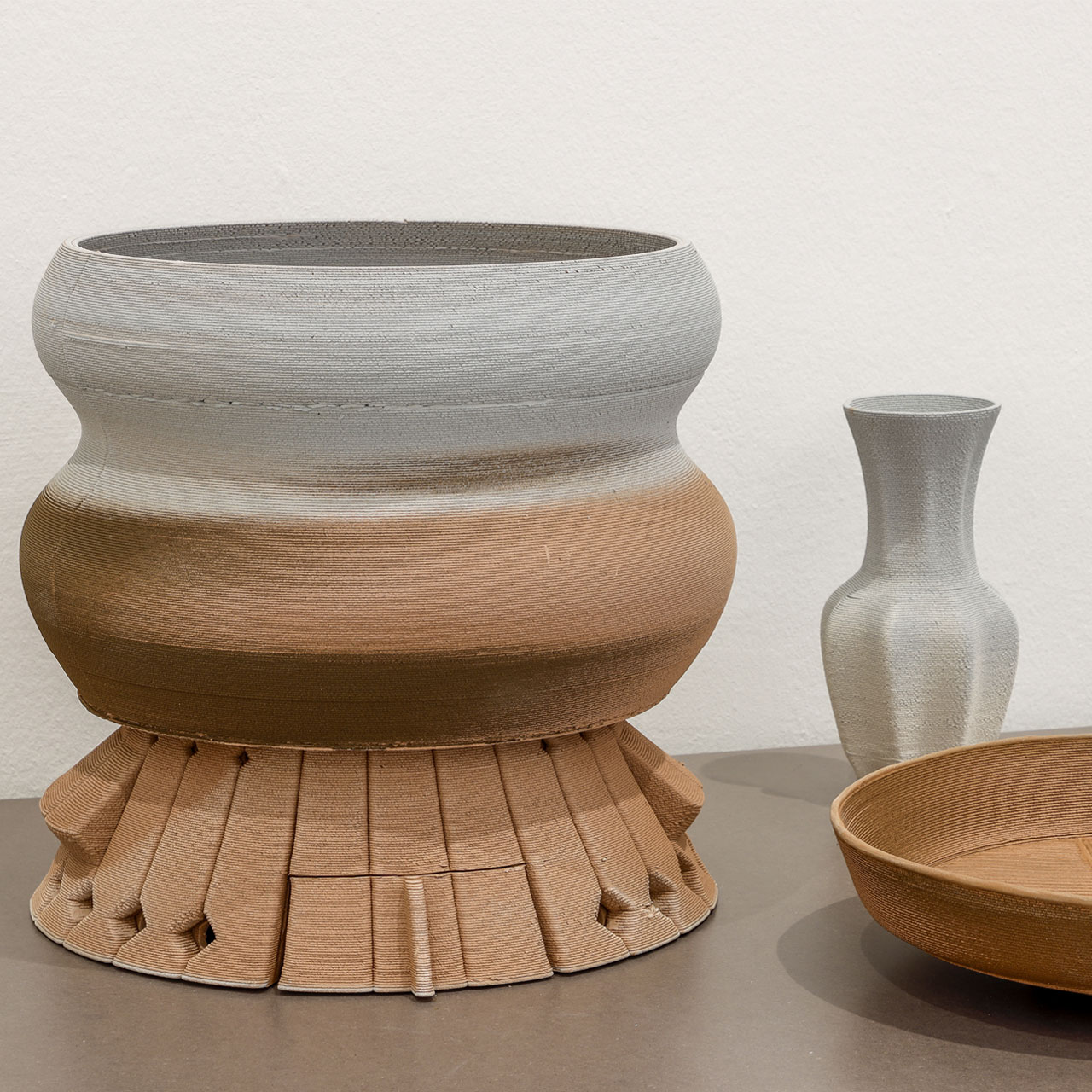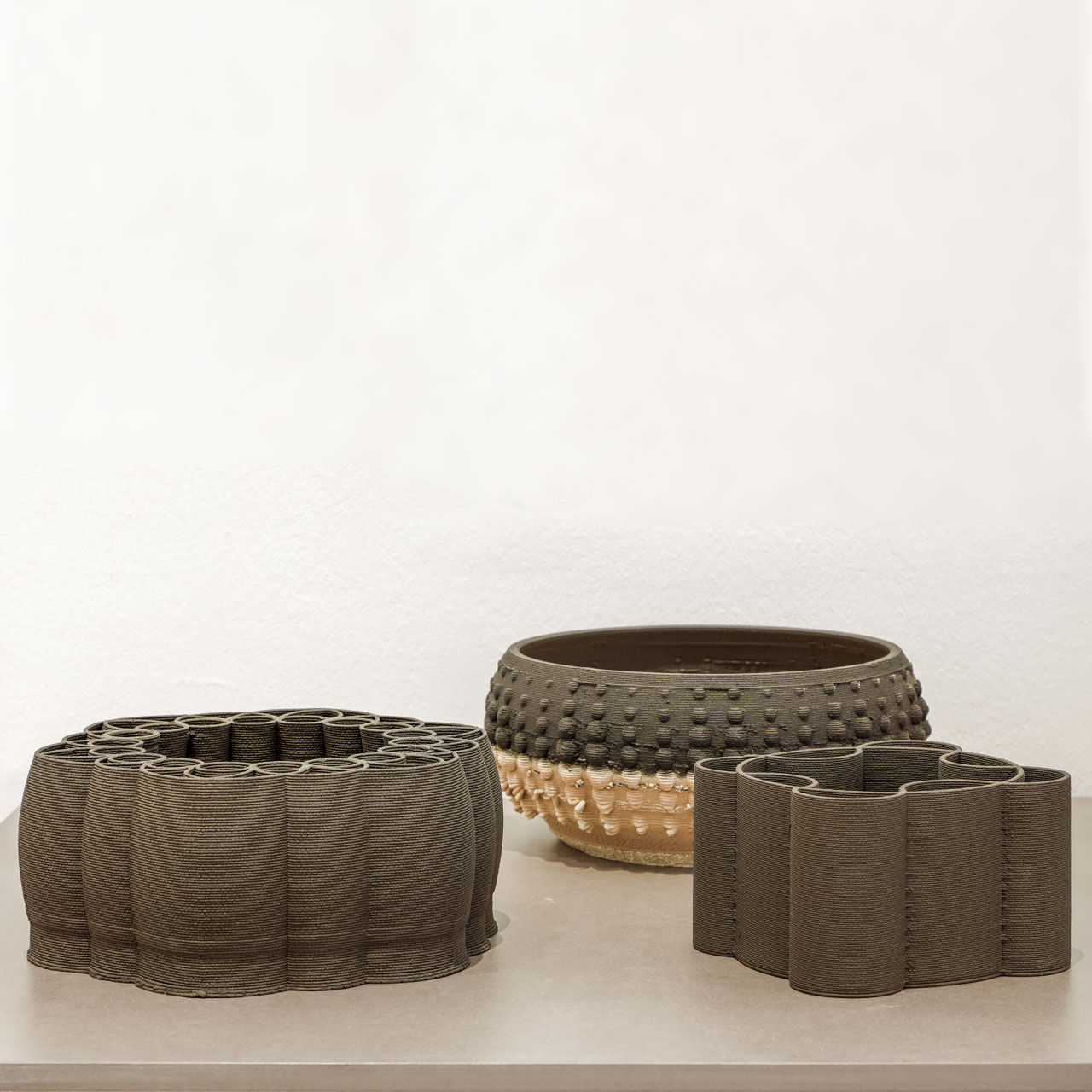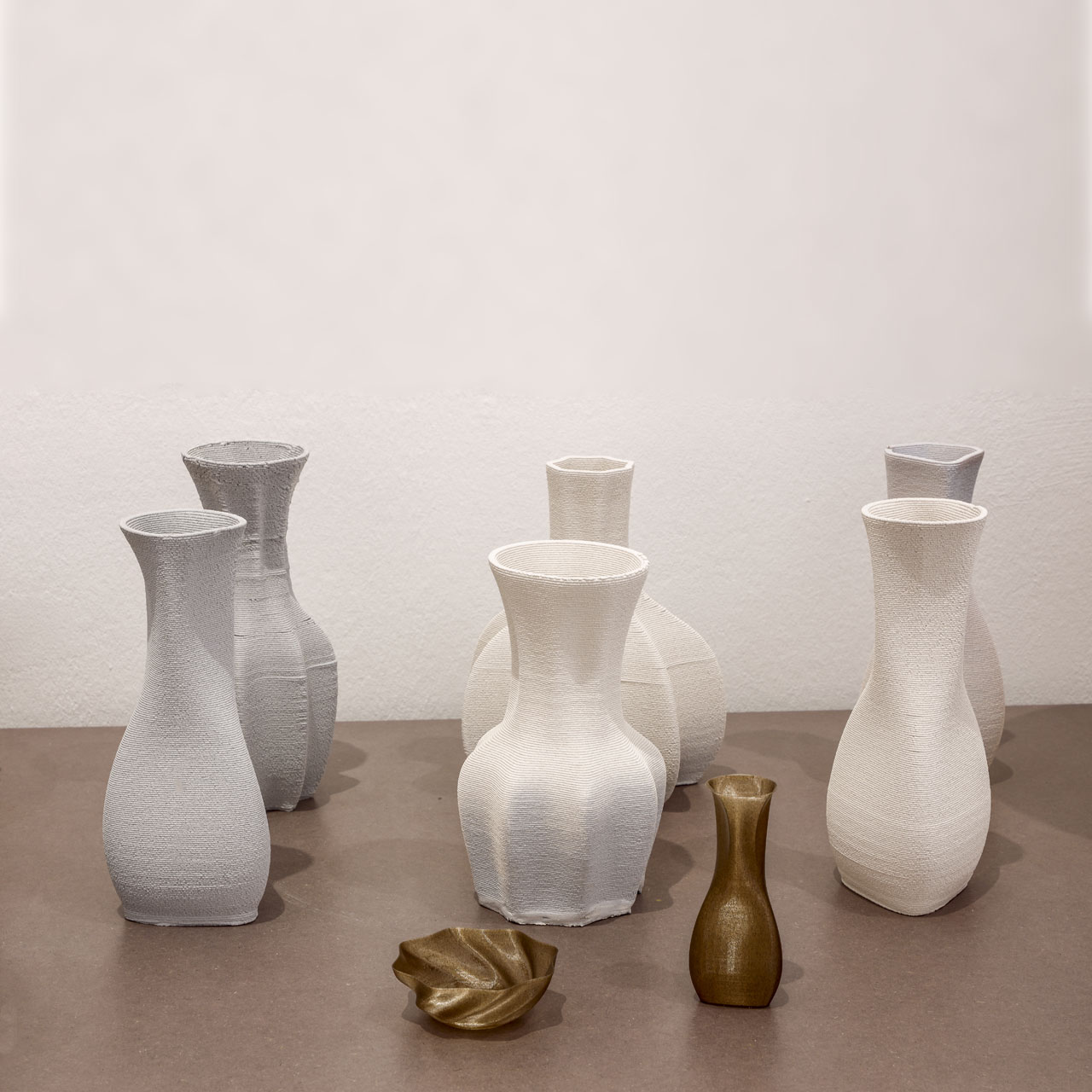


How can design... Propose new imaginaries? Accompany their realisation? Or even contribute to the co-construction of a future desired by empowered citizens? In short, how can it help repair democracy while caring for Gaia?
Exhibition: Déjà Vue, design in everyday life.
Curator : Imke Plinta
Director of theMAMC+: Aurélie Voltz
MAMC+ Scientific Director: Alexandre Quoi
Location: MAMC+ Museum, Saint Etienne
Participation : Ultra Ordinaire (Enze Dong et Siyu Cao) and le Studio Les Communs (Nathalie Bruyère et Jean-Marc Evezard) Graduate : Mathilde Grandchamp et Enze Dong (Illustration). Students : Jocelin Maurel, Emy Parra-Marquez, Charlotte Kouadio, Florent Barthe (3d ceramic printing at 8fablab) Laura Peruggia (Textile) Victor Cohen, Ambre Fortunel, Pauline Bergogne, Eléonore Le Nezet (Furniture) Asher Kearney Lunch (Garment) L'INSA (Thierry Monteil) et Djevalyne Elfassi, Zaccharie Panaud, Anqi Chen (Coffee machine) Charlotte Kouadio, Laura Peruggia, Camille Fages, Sarah Toumi (Wallpaper) - Fonts laser François Chastanet) and students Noelie Dayma, Elisa Garzelli.
Date: January to August 2021
Conference : in the presence of students from Institut supérieur des arts et du design de Toulouse and at the invitation of Aurélie Voltz and Alexandre Quoi with Ruedi Baur and Imke Plinta.
The concept of the Existenzminimum ("vital minimum", in French) originated at the Second International Congress of Modern Architecture (Frankfurt am Main, 1929).
It defends the idea of a minimum acceptable for all in a given society. This minimum is characterised by a living area for everyone, a maximum population density, access to fresh air, green spaces, transport and various services such as schools, shops, etc. This minimum living standard is achieved through a rational organisation of work in society, resulting in a trickle-down of wages and then consumption. This theory leads to a productivist structure of society.
The Existenzmaximum echoes a society transformed into a fragmented variety of markets, making the individual a mass consumer. Marked by hyper-industrialisation, by the omnipresence of the object, by globalisation and advanced technologies, the consumer is then perpetually stimulated
by the need, or desire, to consume.
The current events linked to the pandemic have provoked a political, social and ecological questioning of these two societal logics. There are two possible ways of resolving this crisis: the continuation of these exacerbated lifestyles or their profound questioning by establishing new models of society. These two paths also question the conditions of habitability of our territories. The social tensions in our societies are increasing and remind us that our most fundamental rights are fragile while, at the same time, our habitats are threatened by the depletion of resources on Earth.
